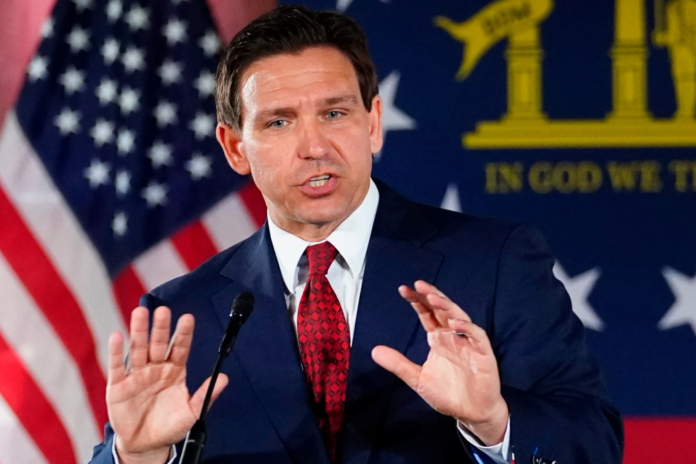In a twist of fate that reads like poetic justice, some of the Venezuelan migrants who were deceived into traveling from Florida to Martha’s Vineyard under Governor Ron DeSantis’s controversial relocation scheme have now secured temporary residency visas in the U.S. This development underscores a significant victory for the migrants, who were unwittingly thrust into the political spotlight as pawns in a broader immigration debate.
In 2022, in an act that critics slammed as a heartless political stunt, DeSantis’s office orchestrated the transport of about 50 migrants by plane from San Antonio, Texas, to the upscale enclave of Martha’s Vineyard, Massachusetts. These individuals were lured with false promises of jobs, shelter, and food, only to find themselves abandoned and bewildered upon arrival. This act was widely viewed not only as an attempt by DeSantis to bolster his tough-on-immigration credentials during his reelection campaign but also as a setup for his presidential ambitions.
The saga took a turn when volunteer groups stepped in to assist the migrants with temporary housing, highlighting a community’s capacity for compassion in contrast to the calculated coldness of political maneuvering. Meanwhile, the legality of DeSantis’s actions came under scrutiny. Bexar County Sheriff Javier Salazar went as far as filing a criminal case, alleging potential violations of “unlawful restraint.” Although the progression of this case remains pending, it has opened a pathway for justice for the victims.
Thanks to the efforts of civil rights attorneys, some of these migrants were able to apply for “U visas.” These visas are designated for immigrants who are victims of certain crimes and have cooperated with law enforcement in the investigation or prosecution of criminal activity. As victims of a potential crime, they now possess the right to work legally in the U.S. and are protected from deportation temporarily. The irony is palpable: the very scheme intended to exploit these individuals for political gain has inadvertently granted them legal protections that could lead to permanent residency.
Moreover, the legal battles are far from over. Some migrants have initiated lawsuits against DeSantis, his associates, and the involved airline, Vertol, accusing them of orchestrating a “premeditated, fraudulent and illegal scheme” to further DeSantis’s personal, financial, and political interests. These suits paint a grim picture of exploitation and highlight a disturbing misuse of power.
A recent federal court decision in Boston has allowed the lawsuit to proceed, marking another step towards accountability. Although DeSantis was initially removed from the lawsuit, the door remains open for his re-inclusion as more evidence comes to light.
This entire episode is a stark reminder of the human cost of political gamesmanship. The migrants, who sought safety and opportunity in the U.S., found themselves caught in a cruel political crossfire that mirrored the instability they hoped to escape. Yet, in this dark narrative, there’s a sliver of hope. The legal system’s recognition of their plight not only reaffirms their rights but also signals a critical check on the use of executive power for political spectacle.
As this story unfolds, it continues to challenge us to reflect on the values we champion and the kind of leadership we endorse. The resilience of the migrants and the judicial pushback against exploitation underscore a broader call for compassion, justice, and accountability in immigration policy and beyond.



